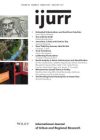The concept of ‘diaspora’ seems to be a relevant framework for reading and understanding the parallel strategies of the settled state and mobility in contemporary flows of migration. This article presents a critical overview of the evolution of the concept, and then goes on to hypothesize the long‐term emergence of an Islamic diaspora in Europe, by analysing how Muslims today are reshaping their relations to time and space. The reappropriation of time is articulated on two distinct but complementary levels. The first is expressed through developments in interpretation of the religious sources (ijtihad), demonstrated by a dynamic of conflict in the reterritorialization of the Revelation: the adaptation of Koranic categories to new sets of social issues, individual reappropriation of the Text, the questioning of consistency between belief and normative behaviour by women and young people. The second, more complex level reflects the creation of a form of subjectivity through the development of collective memory and identity. In this, the structuring of a Muslim ‘community’ stumbles against difficulty in accepting the legitimacy of internal pluralism, which is reflected in the struggles between movements and religious leaderships for control of codes of meaning and symbolic boundaries. In contrast, the appropriation of space appears to be broadly under way: this is demonstrated by the successful integration of the majority of Muslims into the local urban space in Europe. This parallel process of settlement and transnational mobility is made possible by the current vitality of the field of religion – a spiritual extraterritoriality that enables fluid, pragmatic management of integration into the European space. Thus, the diaspora is becoming a true social laboratory, in which a flexible category of belonging is developing. La condition diasporique apparait comme une grille de lecture pertinente pour appréhender les stratégies parallèles de sédentarisation et de mobilité des flux migratoires contemporains. Après une synthèse critique de l’évolution du concept, on fait ici l’hypothèse de l’émergence à long terme d’un islam de diaspora en Europe en analysant comment les musulmans y recomposent aujourd’hui leur rapport au temps et à l’espace. La réappropriation du temps s’articule sur deux plans distincts mais complémentaires. Le premier s’exprime à travers l’évolution de l’interprétation des sources religieuses (ijtihad) qui se traduit par une dynamique conflictuelle de re‐territorialisation de la Révélation: adaptation des catégories coraniques aux nouvelles problématiques sociales, réappropriation individuelle du Texte, questionnement des femmes et des jeunes sur la cohérence entre croyance et conduite normative. Le deuxième plus complexe, exprime une subjectivité en marche qui passe par l’élaboration d’une mémoire et d’une identité collective. C’est ainsi que la structuration d’une ‘communauté’ musulmane trébuche encore sur la difficile acceptation de la légitimité d’un pluralisme interne que reflátent les luttes entre mouvements et leadership religieux pour le controle des codes de sens et des frontiáres symboliques. L’appropriation de l’espace apparait par contre largement entamée: en témoigne l’insertion réussie de la majorité des musulmans dans l’espace local urbain européen. Le processus parallále de sédentarisation et de mobilité transnationale est rendue possible grace à l’actuelle vitalité du champ religieux, extra‐territorialité spirituelle, qui permet ainsi une gestion fluide et pragmatique de l’insertion dans l’espace européen. La diaspora devient alors un véritable laboratoire social où s’élabore une catégorie flexible de l’appartenance.
Details
Written by:
Chantal Saint‐Blancat
Digital Object Identifier (DOI)
10.1111/1468-2427.00368
About DOI
Read full article as PDF
Read full article as HTML
See the references for this article
